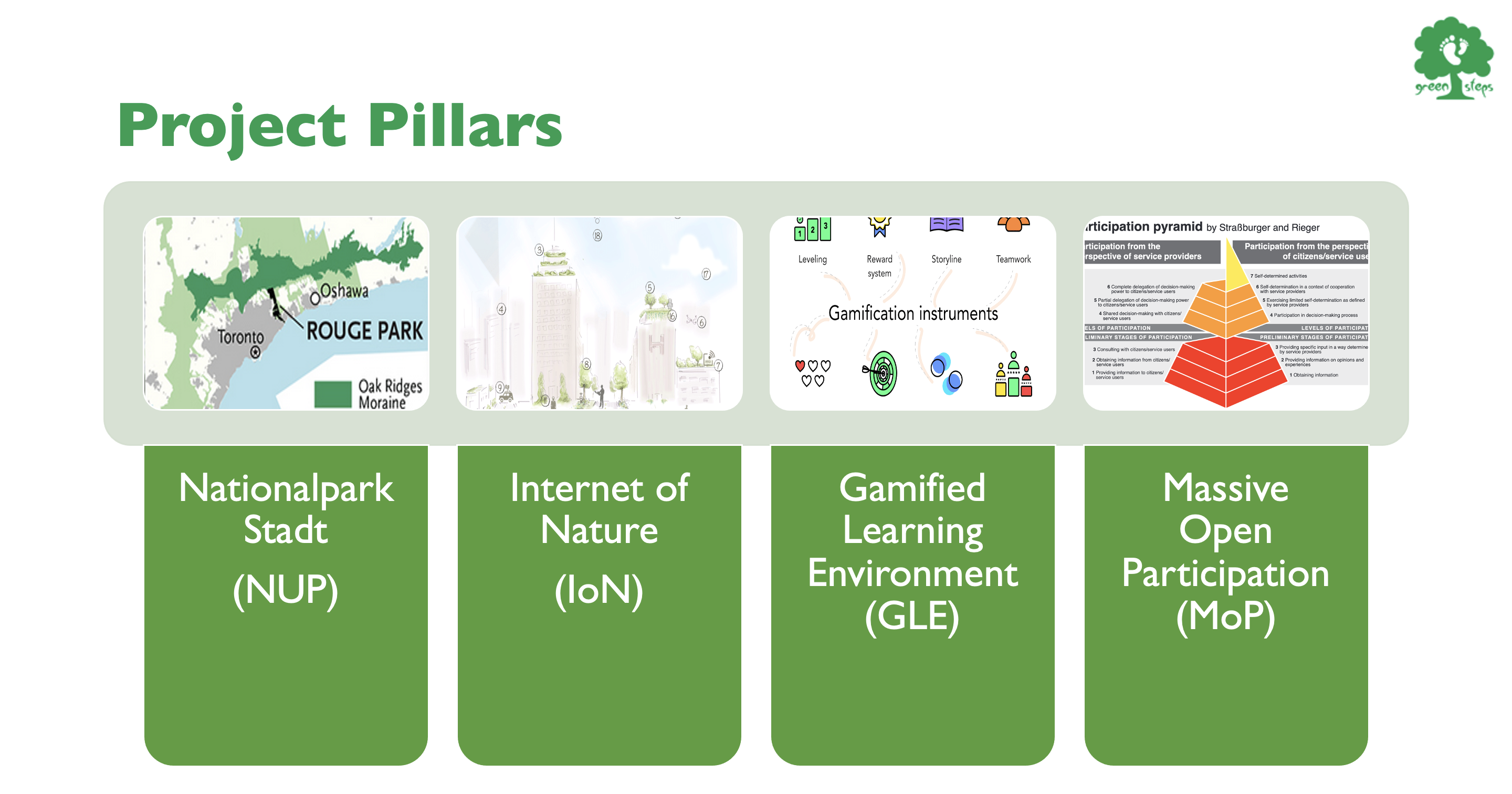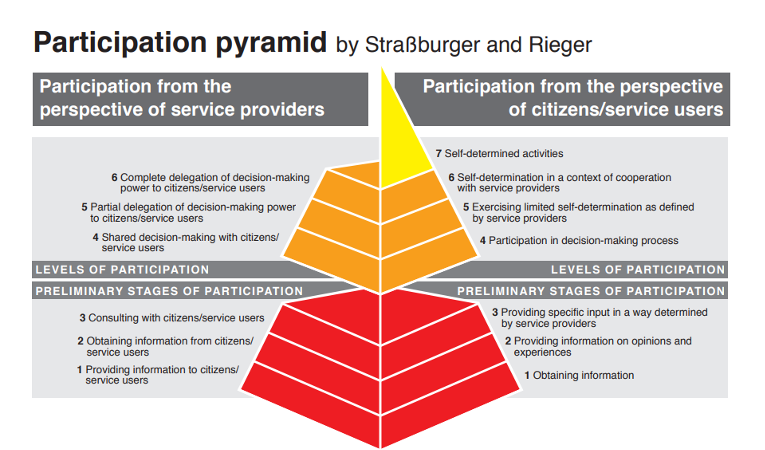Author:
Green Steps
Short summary:
Dutch urban planning student Lillah Martien wrote during her internship with Green Steps STP a super interesting paper which seeks to bridge the seemingly unrelated domains of spatial planning and spatial education in an Austrian pilot project. Gamified environmental education with massive citizen participation is highlighted as a bottom-up strategy to complement existing municipal top-down measures.

Sankt Pölten, the small provincial capital of Lower Austria, is located 60km west of Vienna. It municipal government has big and all-encompassing ambitions. Over the last decade numerous reports and strategies have been written and published, all with the same goal of giving the city a development direction and setting it apart from other urban areas as a 2nd leading European city. But with what measures will Sankt Pölten make itself unique and skyrocket on a European level? Why should others follow, if there is nothing new to learn?
Lillah Martien’s paper analyzes central urban planning documents and finds that recommended or initiated measures only repeat what has or is being done in other cities across Austria and Europe. A genuinely innovative out-of-the-box strategy and a big picture vision for what the city could and shall become are missing. Green Steps offers such a vision and a down-to-earth strategy on how to get there. Massive open citizen participation and mindful gamification are the two strategy pillars, which hold up the vision of turning the city into a National Urban Park. These two pillars show a great overlap with the two top government objectives of achieving climate neutrality and initiating a cultural transformation.

The city’s urban planning department, which is responsible for the climate frame strategy (the flagship document dealing with the climate change adaptation), and Green Steps have a different starting point, which is urban planning and urban education respectively. The climate frame strategy and the Mobile Campus 4.0 (Green Steps’ local flagship project) intersect however regarding two central elements: space and communication. A closer collaboration will yield clear mutual benefits as such:
- A gamified strategy to create real, deep and broad citizen participation
- The affordable generation of missing data with the precious side-effect of creating project ownership in the population at large and therefore preparing support for required measures to be taken
- A unique and novel spatial education concept, which can serve as a global model and will make other cities want to learn from St. Pölten
- A solid concept for communication, awareness, education and participation – the weakest part of the climate frame strategy
- Moving faster towards tangible climate change mitigation results – the overall goal objective of both organizations

Green Steps has overlap with all objectives from the climate frame strategy and a lot of objectives from the urban masterplan. But when it comes to the tools Green Steps provides, the urban planning department seems to be the best municipal partner. The Mobile Campus 4.0 project could help the magistrate with the affordable collection of missing data that is needed to reach its objectives. Currently this is difficult because Green Steps has been labelled by the city planning department as an informal education provider, which is not capable of contributing to urban planning. With some out-of-the-box thinking, a mindset which is required to turn the city into a model for other urban centers, it is however clear that Green Steps does not only offer yet another environmental education program, but a novel strategy which intersects with urban planning regarding the spatial dimension.
The paper also shows that a feasible solution to the climate crisis in an urban setting requires an interdisciplinary mindset. Existing administrative power structures which make government officials think and act along vertical lines of responsibility prevent the horizontal and integral solutions needed. Halfhearted attempts to introduce civic participation create rather distrust than the embrace of difficult decision to come. The result is growing civic unrest and a long number of petitions against government decisions reaching from the design of public spaces to commercial land use decisions.

Gamification is the craft of deriving all the fun and engaging elements found in games and applying them to real-world or productive activities. So, in short: do meaningful things with fun and perseverance. Green Steps designs gamified experiences in an urban outdoor setting which are supported by a web app. The objective of these experiences is broad, fun-based citizen involvement, ownership, and a lasting feeling of purposeful contribution. This approach is rooted in education but extends to all areas of urban life. At one point municipal governments will realize that they are incapable of dealing with the climate crisis by adhering to orange command and order mechanisms of decision making. The future is teal. It is characterized by decentralized decision making, an evolutionary purpose and dynamic team collaboration. This future of democratic political life will need however gamification to involve the population at large.
Read the entire paper on Researchgate!





